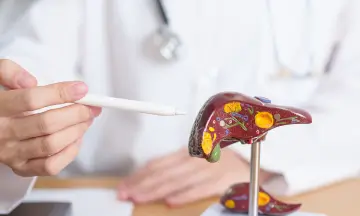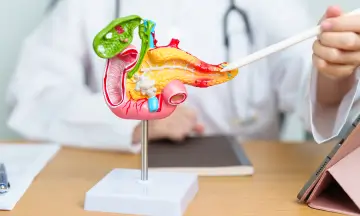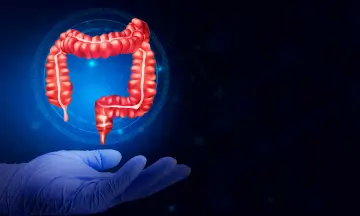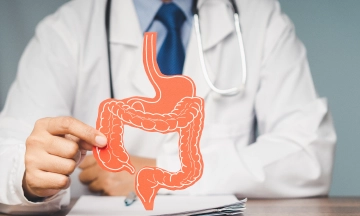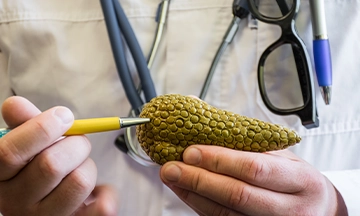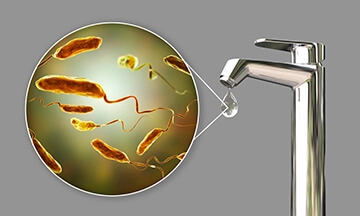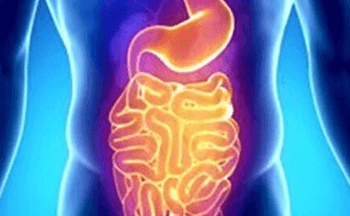
Esophageal swallowing disorders refer to a group of conditions that affect the normal swallowing process and cause difficulty in swallowing (dysphagia). The esophagus is the tube that carries food and liquids from the mouth to the stomach.
The process that takes place in the esophagus involves muscular contractions, called peristalsis, that push food down to the stomach. The process starts when food or liquid is taken into the mouth and begins to be chewed and mixed with saliva. This mixture then travels down the esophagus, which is a muscular tube that connects the mouth to the stomach.
As food and liquids move down the esophagus, the muscles in the wall of the esophagus contract and relax in a coordinated manner to push the food toward the stomach. This process of muscular contractions is called peristalsis. At the lower end of the esophagus, there is a ring-like muscle called the lower esophageal sphincter (LES) that opens and allows the food to enter the stomach.
Collectively, these parts form a seamless system that transfers food from the mouth into the stomach while preventing backflow into the esophagus. This process may be affected by physical barriers or disorders that impair motor performance (esophageal motility disorders).
Types of Esophageal Disorders
There are different types of esophageal disorders which include:
Gastroesophageal reflux disease (GERD) is a chronic digestive condition in which stomach acid flows back into the esophagus, causing irritation and inflammation of the esophageal lining. This can lead to symptoms such as heartburn, chest pain, sore throat, and trouble swallowing.
Barrett's esophagus is a condition in which the tissue lining the esophagus changes and becomes more like the tissue lining the intestine. It is usually caused by long-term exposure to stomach acid, often as a result of gastroesophageal reflux disease (GERD). It increases the risk of developing esophageal cancer, so regular monitoring and treatment to prevent progression to cancer are necessary for those with the condition.
Esophageal cancer comes in two kinds: squamous cell carcinoma and adenocarcinoma. The danger of esophageal squamous carcinoma is generally increased by smoking, radiation, and HPV infection, while the risk of adenocarcinoma is increased overall by smoking and acid reflux.
In the esophagus, unusual muscle spasms (contractions) take place. This rare and unpleasant condition prevents food from entering the stomach.
Achalasia is a rare esophageal disorder characterized by the inability of the lower esophageal sphincter (the muscle that separates the esophagus from the stomach) to relax properly, which leads to difficulty swallowing and the buildup of food and saliva in the esophagus. This can cause chest pain, heartburn, regurgitation, and weight loss. The exact cause of achalasia is unknown, but it is believed to be related to a problem with the nerve cells that control the muscles in the esophagus.
A hiatal hernia is a condition in which part of the stomach bulges up into the chest through an opening in the diaphragm, the muscle that separates the chest and abdominal cavities. There are two main types of hiatal hernia: sliding hiatal hernia and para-esophageal hiatal hernia. Sliding hiatal hernia is the most common type and usually causes no symptoms. Paraesophageal hiatal hernia, on the other hand, can cause symptoms such as chest pain, heartburn, and difficulty swallowing.
According to studies, many people have complained of acid reflux and heartburn, and even difficulty swallowing. These issues with the mouth, throat, or esophagus are primarily caused by the following:
- Structural failure in physical systems
- Injury to the muscles or nerves controlling swallowing
- Physical impediment
Risk factors of Esophageal Swallowing Disorder
Several factors can maximize the risks of developing esophageal swallowing disorder. These include
- Consumption of alcohol
- Smoking
- Gaining weight due to pregnancy or obesity.
- Radiation therapy to the chest or neck.
- Taking certain medications such as antibiotics, painkillers, and antidepressants.
Swallowing and esophageal diseases can have serious consequences if left untreated. Early diagnosis and treatment should be taken to get rid of this health issue.
Symptoms of Esophageal Swallowing Disorder
Depending on the esophageal disorder kind, various symptoms may occur. The symptoms are as follows:
- Sore throat or chronic cough
- Abdominal pain, back pain, or even chest pain
- Heartburn is a feeling of burning in the chest
- Wheezing or hoarseness
- An unexpected loss of weight
- Indigestion is a feeling of burning in the stomach
- Vomiting or regurgitation
- Feeling as if food is stuck in the throat or difficulty swallowing
Diagnosis of Esophageal Swallowing Disorder
The best doctor for gastroenterology in Bangalore will conduct a thorough physical examination, talk about the symptoms, and review the medical history in order to figure out whether an individual has a swallowing condition. Focusing on the following while one discusses the swallowing issues:
- If the person has any symptoms in the mouth, throat chest, or neck, where one is feeling the food being stuck
- If certain food triggers any symptoms or makes them worse
- When does the problem related to swallowing start
- Any other health concerns that one is experiencing
Additionally, by examining the inside of the throat or mouth, the doctor may recommend other tests to know the exact cause of the swallowing issue. These are as follows:
This examines the upper portion of the digestive tract with the help of a long and thin scope. The provider might take the tissue samples to get a biopsy report and observe the signs of cancer, inflammation, and other diseases.
This helps to monitor the condition of muscles in the esophagus.
It involves drinking a chalky solution that coats the esophagus, stomach, and small intestine and helps highlight these structures on X-ray, and uses imaging to observe how the liquid barium solution is flowing through the digestive tract and esophagus.
This helps to measure the amount of ph level or stomach acid in the esophagus.
In case you are experiencing any problem while swallowing and even notice any symptoms, you can visit the best gastroenterology hospital in Bangalore, Sakra World Hospital where their team is expert in treating health issues like esophageal disorders with the help of their gastroenterology specialists.






